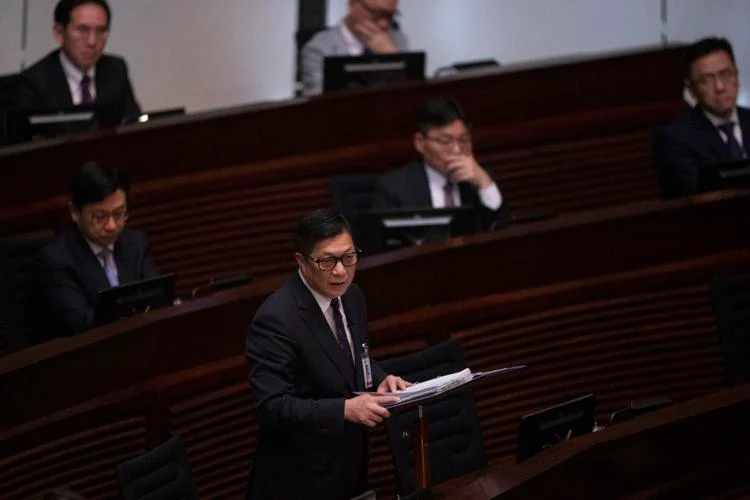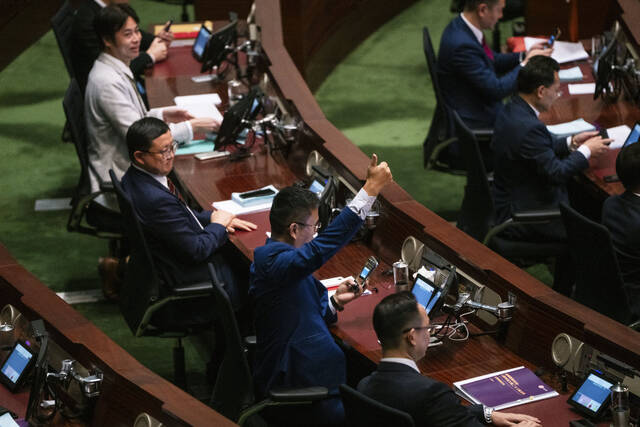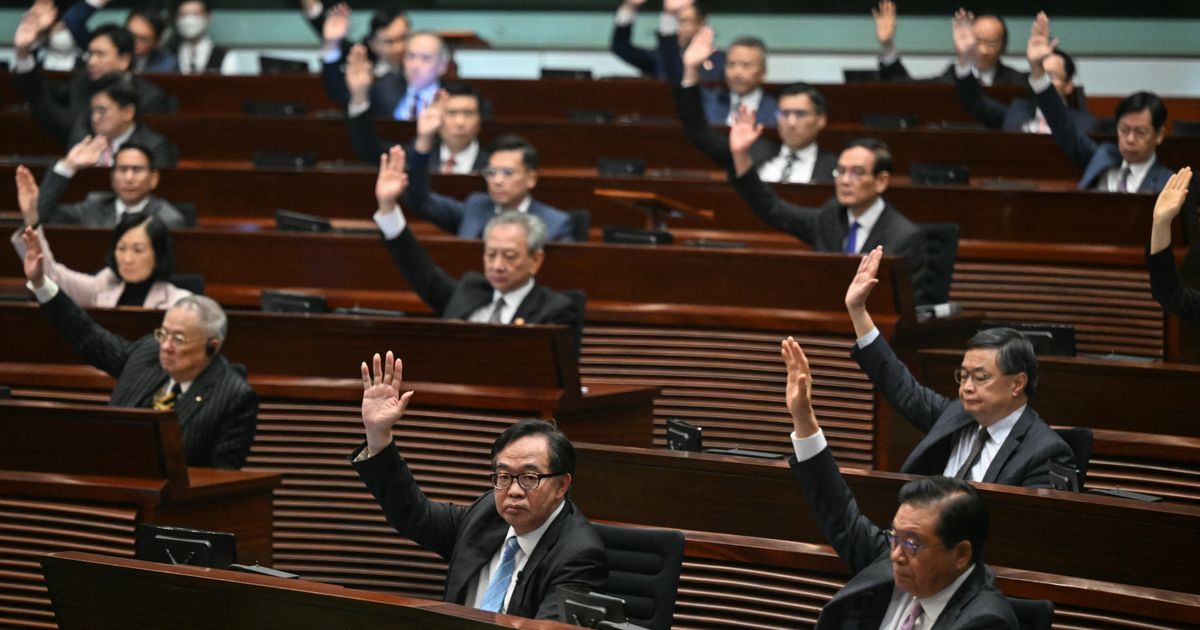Hong Kong lawmakers unanimously passed a new national security law on Tuesday, granting the government increased authority to suppress dissent, marking another significant move in the broader political crackdown initiated by the pro-democracy protests of 2019.
The legislation, named the Safeguarding National Security Bill, was swiftly approved during a special session of the Legislative Council on Tuesday. This law supplements a similar one imposed by Beijing four years earlier, which has already substantially stifled opposition voices within the financial hub.
The Legislative Council, now predominantly composed of Beijing loyalists following an electoral overhaul, expedited the passage of the law. Since its introduction on March 8, a committee convened daily meetings over a week, responding to Hong Kong leader John Lee’s urging to expedite the process. Following the vote, Lee announced that the law would come into effect on Saturday.

Hong Kong Lawmakers Pass Law Strengthening Government Control Over Dissent (Credits: Santa maria Times)
Critics expressed concerns that this new law could further diminish civil liberties, which Beijing pledged to uphold for 50 years following the territory’s return to Chinese sovereignty in 1997. The law introduces severe penalties for a broad spectrum of activities deemed threats to national security, with the most serious offenses, such as treason and insurrection, carrying potential life imprisonment.
Even lesser offenses, like possessing seditious publications, could result in several years of incarceration. Some provisions extend the law’s jurisdiction to acts committed anywhere in the world.
Andrew Leung, President of the Legislative Council, stated that all lawmakers felt honored to participate in this “historic mission.” Notably, Leung, who typically wouldn’t vote, cast a vote on this occasion.
John Burns, an honorary professor at the University of Hong Kong, remarked that the legislative process underscored the city’s compromised accountability system. While lawmakers scrutinized the bill and proposed amendments were adopted, much of the debate revolved around expanding the state’s authority on national security matters and enhancing penalties for related offenses.
Simon Young, a law professor at the University of Hong Kong, acknowledged that the legislature didn’t merely rubber-stamp the law. However, he lamented the absence of expert input during the process.
The political landscape in Hong Kong has undergone substantial transformation since the massive 2019 protests and the subsequent imposition of Beijing’s National Security Law.
Numerous prominent activists have faced prosecution, while others have sought refuge abroad. Influential pro-democracy media outlets like Apple Daily and Stand News have ceased operations, leading to an exodus of disillusioned professionals and families.

Hong Kong Lawmakers Pass Law Strengthening Government Control Over Dissent (Credits: Pittsburgh Tribune-Review)
Hong Kong’s Basic Law mandates the enactment of a local national security law. An earlier attempt in 2003 triggered massive protests and forced the legislation’s shelving. However, protests against the current bill were notably absent, largely due to the chilling effect of the existing security law.
Both Chinese and Hong Kong authorities contend that the Beijing-imposed law has restored stability after the 2019 unrest. They assert that the new security law strikes a balance between security and the protection of rights and freedoms, aiming to prevent a recurrence of protests while affecting only a small minority of disloyal residents.
The law targets activities such as espionage, disclosing state secrets, and colluding with external forces to commit illegal acts. Penalties are particularly severe for those who damage public infrastructure with the intent to endanger national security, especially if they collude with external forces.
Businesspeople and journalists fear that the law’s broad provisions against disclosing state secrets and foreign interference could impede their daily activities.
Observers are closely monitoring whether the authorities will expand enforcement to other professional sectors and the broader implications for the liberties of Hong Kong residents.























